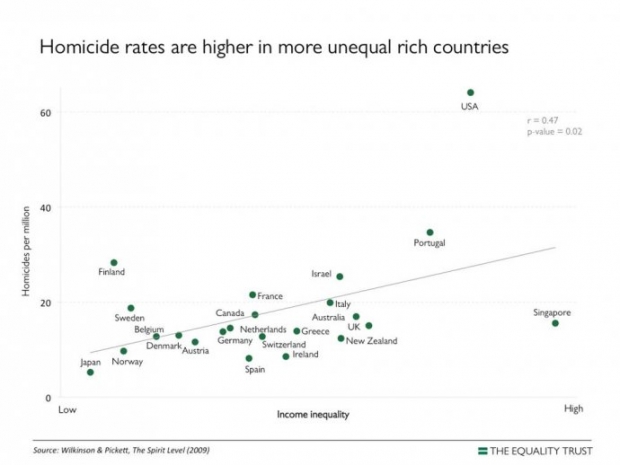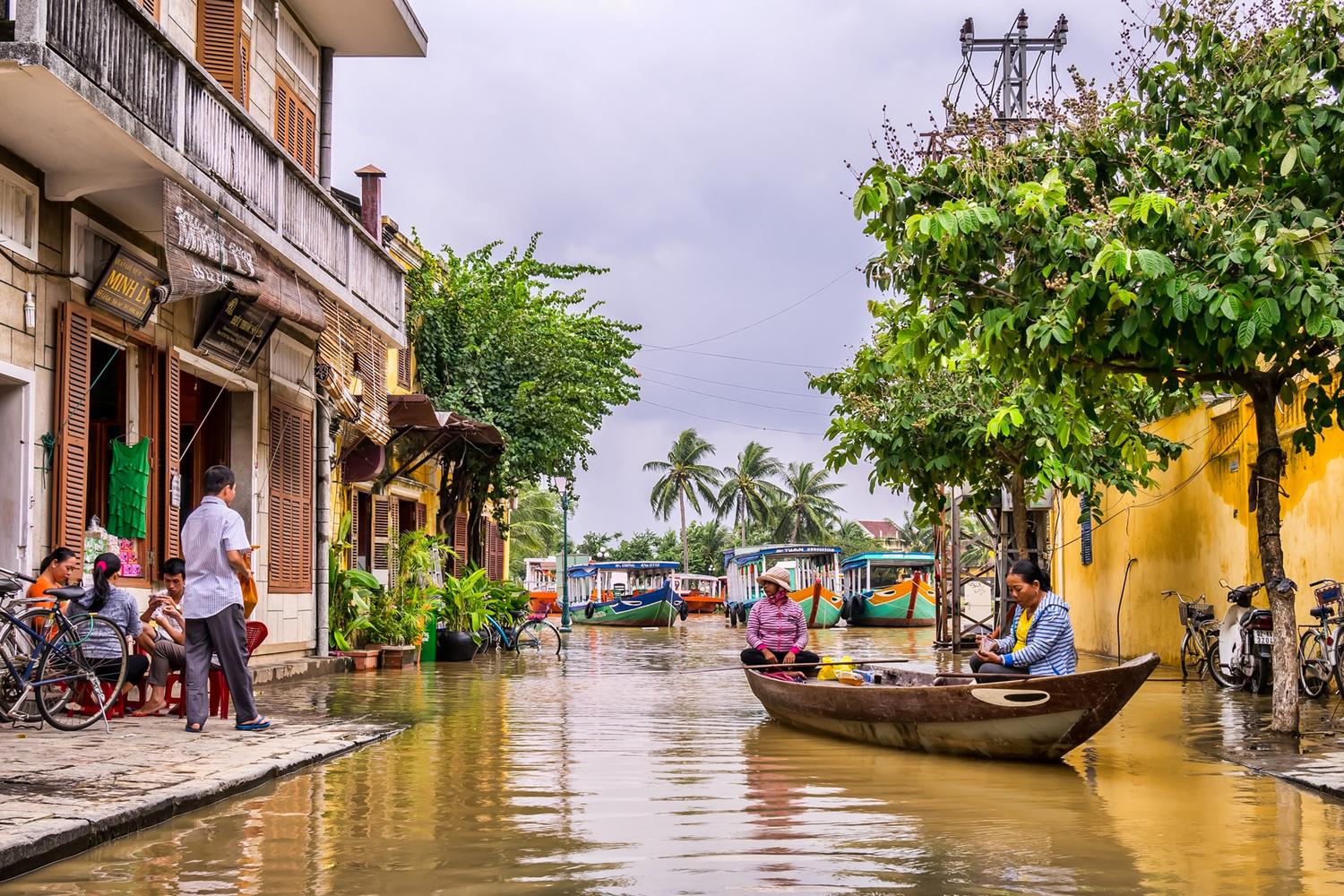As time progresses, increasing economic inequality and social immobility are evident in the emergence of poverty as one of the consequences of market liberalization policies and structural adjustment programs that were implemented in the 1990s. This new reality has spurred research that analyzes our social, political, ecological and personal relations systems.
Wilkinson and Pickett, two academics, did a study called The Spirit Level that sparked controversial debates in the UK when the results were presented. The authors conveyed that, in the present-day industrialized world, there are important correlations between indices of economic inequality and various social ills.
For example, OECD countries with higher income inequality rates have higher rates of violence, lower rates of health, lower social capital indices, higher trends in the usage of illegal drugs and antidepressant medications, and lower life expectancies, among other undesirable correlations and consequences. (Wilkinson et.al., 2009)
Homicide rates, on the other hand, are higher in more unequal countries and in more unequal states across the U.S.A. In Guatemala, when comparing maps depicting inequality and homicide, the two issues are shown to be positively correlated in regions, departments, and municipalities. (Mendoza, 2018)
Editor’s Picks: And Change is Coming Whether You Like it or Not | My Truth, Your Truth, Their Truth, and “The” Truth | Containing Migration is a Mistake
“Inequality predicts homicide rates better than any other variable,” says Martin Daly Professor Emeritus of Psychology and Neuroscience at the University of McMaster, Ontario.
Extremism is also exacerbated by inequality. The Psychology Associate Professor, Lotte Thomsen of the University of Oslo says: “We see a vicious circle: The greater the inequality in a society, the more privileged groups tend to support the structures that maintain those hierarchies. People from these groups will also tend to use violence to maintain their position.” (PNAS, 2016)
According to the World Bank, there is a robust direct correlation between greater inequality and the incidence of robberies or homicides. The organization also indicates that reducing poverty and inequality accelerates the increase in people’s per capita income which, in turn, reduces crime rates. (B.M. 2002)

So, what is the Joker Effect?
I relate these findings to the character of the Joker from Batman. The Joker grew up and lived in the unequal and corrupt Gotham City which mirrors the reality of many societies today that have high rates of inequality and social exclusion. Gotham City is a society that privileges some groups and excludes others, whether that be based on their skin color, their mental health condition, their sex, gender identity, ethnicity or economic status. In a society’s institutions, non-formal structures, and day to day social interactions, inequality silently cultivates frustrations, disagreements, resentments and anger amongst a silent majority.
Given this perceived inability for one to escape their condition of poverty and invisibility that socio-economic exclusion provides for a society, the excluded person will resort to heterodox, illegal, and/or immoral methods to liberate themselves from the dark hole of invisibility and the lack of opportunities for the construction of their own freedom. A Joker is unleashed and other copycats will follow.
Addressing inequalities is a task that must be prioritized by any government and supported by any citizen because its negative consequences affect the integral well-being of every individual, regardless of their social status, political ideology, gender or position in society.










